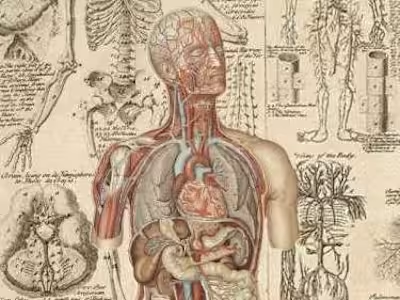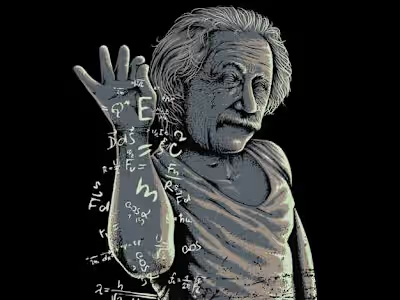Content Writing: Exploring English Literature
Exploring English Literature: A Journey Through Time and Imagination
English literature, with its vast and rich history, has captivated readers for centuries. From the epic tales of knights and dragons to the intimate explorations of human emotions, it offers a window into the evolving psyche, culture, and society of English-speaking worlds. Let’s embark on a journey through this vibrant landscape, exploring its origins, notable periods, and its enduring impact on our lives today.
The Origins of English Literature
English literature traces its roots back to the early medieval period, with one of its earliest known works being "Beowulf," a heroic epic from around the 8th century. This Old English poem tells the tale of the brave warrior Beowulf and his battles against the fearsome monster Grendel, Grendel’s mother, and a dragon. Through Beowulf, we glimpse the early English language and the values of a warrior society where honor, bravery, and loyalty reigned supreme.
The transition from Old English to Middle English brought with it a flowering of literature, including the works of Geoffrey Chaucer. His "Canterbury Tales" (1387) is a masterpiece of narrative poetry that presents a colorful array of pilgrims on a journey, each telling stories reflecting the diverse strata of medieval society. Chaucer’s wit and keen observation of human nature make his work enduringly relevant.
The Renaissance: The Age of Drama and Poetry
The English Renaissance of the 16th and 17th centuries marked a golden age in literature, especially drama and poetry. At the heart of this period stands William Shakespeare, whose plays and sonnets remain some of the most celebrated works in the English language. Shakespeare’s works, from the tragic depth of "Hamlet" and "Macbeth" to the comedic brilliance of "A Midsummer Night’s Dream" and "Twelfth Night," explore the breadth of human experience—love, power, jealousy, ambition, and identity.
Alongside Shakespeare, poets like Edmund Spenser with "The Faerie Queene" and John Milton, whose epic "Paradise Lost" tackled grand themes of human fallibility, also shaped the literary landscape. Their works embody the richness of the Renaissance imagination, a period when classical myths, Christian theology, and the human spirit converged in remarkable ways.
The Rise of the Novel
The 18th century saw the rise of a new form of literature: the novel. Writers like Daniel Defoe with "Robinson Crusoe" (1719) and Samuel Richardson with "Pamela" (1740) began experimenting with prose to tell longer, more detailed stories. Jane Austen, writing at the turn of the 19th century, further developed the novel with her sharp social commentary and focus on character psychology. Works like "Pride and Prejudice" (1813) and "Emma" (1815) examine the lives of women and the complexities of love, marriage, and social status with humor, wit, and insight.
The Romantics and the Victorians
The early 19th century ushered in the Romantic movement, which was defined by an emphasis on emotion, nature, and the sublime. Poets like William Wordsworth, Samuel Taylor Coleridge, Percy Bysshe Shelley, and John Keats wrote lyrical, introspective works that often sought to explore the deeper meaning of existence and the power of nature. Mary Shelley, in her groundbreaking novel "Frankenstein" (1818), blended Romanticism with Gothic horror, examining the dangers of unchecked ambition and scientific exploration.
Following the Romantics, the Victorian era (1837-1901) was dominated by novelists who grappled with the challenges of industrialization, class struggles, and morality. Charles Dickens emerged as one of the period’s most prominent voices, with works like "A Tale of Two Cities" (1859) and "Great Expectations" (1861) depicting the harsh realities of 19th-century England while also championing themes of redemption and social justice. George Eliot, with novels like "Middlemarch" (1871), brought a keen psychological insight and moral complexity to her narratives, making her one of the most respected novelists of the period.
The Modern Era and Beyond
The 20th century saw a shift towards modernism in English literature, with writers experimenting with narrative structure, language, and form. James Joyce’s "Ulysses" (1922) revolutionized the novel with its stream-of-consciousness technique, while Virginia Woolf’s "Mrs. Dalloway" (1925) and "To the Lighthouse" (1927) explored the inner lives of characters in poetic, fragmented prose.
Post-World War II literature brought forward new voices and perspectives. George Orwell’s dystopian "1984" (1949) and Aldous Huxley’s "Brave New World" (1932) challenged societal norms and questioned the future of human civilization. Postcolonial writers like Chinua Achebe, with his seminal work "Things Fall Apart" (1958), provided an essential counter-narrative to colonialism and explored the complexities of African societies and identities.
The Impact of English Literature Today
English literature continues to evolve, reflecting the shifting landscapes of culture, politics, and human experience. Contemporary authors like Zadie Smith, Kazuo Ishiguro, and Salman Rushdie tackle issues such as identity, migration, and globalization in their work. Meanwhile, classic works of English literature remain ever-present in classrooms, libraries, and homes across the world, continuing to inspire and resonate with readers.
The exploration of English literature is not merely an academic exercise—it is an exploration of what it means to be human. Through stories, poems, and plays, we confront our fears, celebrate our triumphs, question our beliefs, and deepen our understanding of the world and ourselves.
Conclusion
To explore English literature is to embark on a journey through time, discovering the minds, dreams, and concerns of those who have come before us and those who stand beside us. It is an endless landscape, one that invites readers to immerse themselves in the imagination and insight of the writers who have shaped and continue to shape our understanding of life.
Like this project
Posted Sep 5, 2024
In-depth blog series analyzing classical works of English literature, blending literary critique with captivating storytelling.
Likes
0
Views
0



